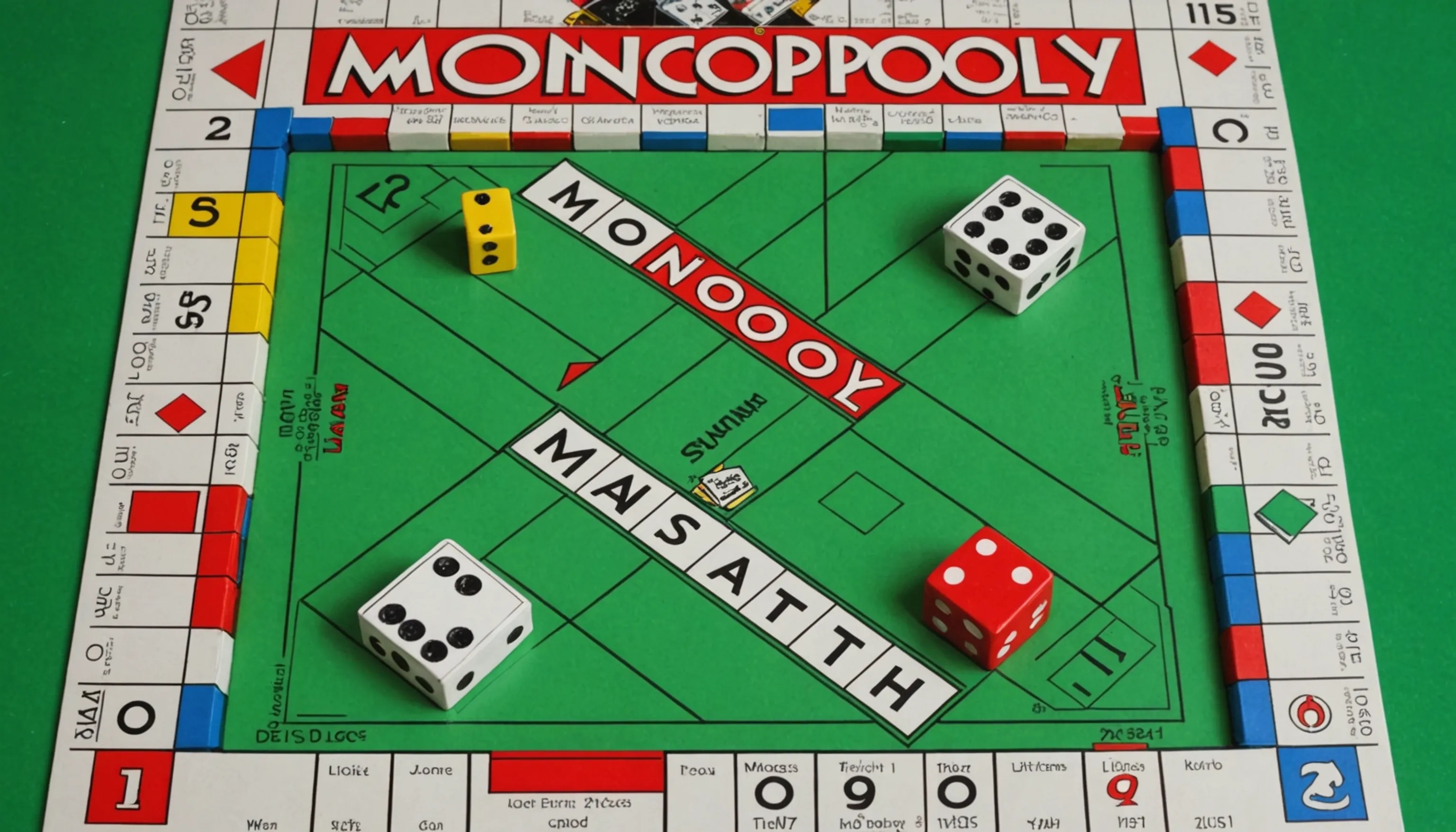Teaching Math Concepts Through Interactive Games
 HvWHenry van Wagenberg
HvWHenry van Wagenberg
Teaching Math Concepts Through Interactive Games
Teaching math concepts through interactive games is an effective way to engage students and enhance their learning experience. These games make abstract concepts more tangible by providing a hands-on approach to problem-solving. By integrating play into the learning process, students can explore mathematical ideas in a fun and stimulating environment.
Interactive games encourage collaboration among peers, fostering teamwork and communication skills. Additionally, they can cater to various learning styles, ensuring that every student has the opportunity to grasp challenging math concepts. Overall, incorporating games into math instruction can lead to a deeper understanding and retention of material.
Benefits of Using Interactive Games for Math Learning
Using interactive games for math learning offers numerous benefits that enhance the educational experience for students. Firstly, these games promote active participation, allowing students to engage with the material instead of passively receiving information. This active involvement can lead to improved motivation and a positive attitude towards math.
One significant advantage is the ability to cater to different learning styles. Some students may excel in visual learning, while others may benefit from kinesthetic activities. Interactive games provide a versatile platform that accommodates various approaches, ensuring that all students can grasp complex mathematical concepts.
Moreover, interactive games often incorporate elements of competition and teamwork, which can foster social skills. Students learn to collaborate with their peers, communicate effectively, and develop critical thinking skills as they navigate through challenges together.
Additionally, these games can be tailored to different skill levels, enabling personalized learning experiences. Educators can choose or create games that align with their students’ current understanding, allowing for differentiation in the classroom.
Finally, interactive games can enhance retention of math concepts. The fun and engaging nature of these games helps reinforce learning, making it easier for students to recall information during assessments. Overall, utilizing interactive games in math education not only makes learning enjoyable but also significantly improves comprehension and retention of mathematical concepts.

How Interactive Games Enhance Engagement in Math
Interactive games play a crucial role in enhancing student engagement in math by transforming traditional learning methods into dynamic experiences. One of the primary ways these games captivate students is through their entertaining nature. When math is presented in a game format, it reduces anxiety associated with the subject, allowing students to approach challenges with a more positive mindset.
Moreover, interactive games often incorporate elements of competition and rewards, which can motivate students to participate actively. For example, earning points, badges, or other incentives encourages students to strive for success while reinforcing their learning. This competitive spirit can drive them to master difficult concepts as they work to achieve higher scores.
Additionally, interactive games promote collaborative learning. Students often work together in teams, discussing strategies and sharing knowledge, which enhances their understanding of mathematical concepts. This social interaction also fosters a sense of community and belonging among peers, making learning more enjoyable.
Furthermore, many interactive games offer immediate feedback, allowing students to assess their understanding in real-time. This instant response helps learners identify areas for improvement and adjust their strategies accordingly, reinforcing a growth mindset.
Overall, by integrating interactive games into math education, teachers can create an engaging learning environment that not only captures students' attention but also encourages deeper exploration of mathematical concepts, leading to greater academic success.
Types of Interactive Games for Teaching Math
There are several types of interactive games that effectively teach math concepts. Board games, such as Monopoly and Math Dice, engage students in strategic thinking while reinforcing mathematical operations. Online platforms like Kahoot! and Prodigy offer interactive quizzes and challenges that motivate learners through competition. Additionally, mobile apps such as DragonBox and Mathway provide engaging, on-the-go math practice tailored to individual skill levels. Lastly, classroom activities like math scavenger hunts and puzzle-solving games encourage teamwork while making learning fun and interactive, ensuring students remain engaged with math.

Board Games that Teach Math Concepts
Board games are a fantastic way to teach math concepts while providing an engaging and interactive experience for students. One popular example is Monopoly, which introduces players to concepts such as addition, subtraction, and money management. As players buy properties and calculate rents, they develop essential financial literacy skills.
Another effective board game is Sum Swamp, designed specifically for younger learners. In this game, players navigate through a swamp while solving addition and subtraction problems. This fun, hands-on approach helps reinforce basic arithmetic skills in an enjoyable setting.
Math Dice is another excellent option that encourages mental math. Players roll dice and create combinations to reach target numbers, enhancing their problem-solving and critical thinking abilities. The game can be adjusted to various skill levels, making it suitable for a wide range of students.
Prime Climb offers a unique twist on traditional math games by incorporating prime numbers and multiplication. Players move their pieces around a colorful board, strategically using math skills to advance while learning about number relationships and factors.
Lastly, Blokus not only teaches spatial reasoning and planning but also incorporates geometry concepts. Players must strategically place their pieces on the board, promoting an understanding of shapes and area. Overall, these board games provide an enjoyable and effective way to teach math concepts, making learning both fun and memorable.
Online Math Games and Platforms
Online math games and platforms offer an engaging way to enhance students' mathematical skills through interactive learning experiences. One of the most popular platforms is Kahoot!, which allows teachers to create quizzes that students can answer in real-time using their devices. This competitive format encourages participation and helps reinforce math concepts while making learning fun.
Another effective online resource is Prodigy Math, an immersive game that combines adventure with math practice. Students create characters and embark on quests, solving math problems to progress in the game. This approach not only makes learning enjoyable but also personalizes the experience based on each student's skill level.
For younger learners, ABCmouse provides a comprehensive curriculum that incorporates interactive math games tailored for early education. The platform offers a variety of activities that cover essential math skills, from counting to basic addition and subtraction, fostering a strong foundation in mathematics.
Math Playground is another excellent resource that features a wide range of math games, logic puzzles, and interactive challenges. It provides opportunities for students to practice various skills, from arithmetic to problem-solving, in a fun and engaging environment.
Lastly, Coolmath Games offers a unique collection of math-based games that emphasize strategy and critical thinking. By integrating math into gameplay, students can develop their skills while enjoying a variety of game genres. Overall, these online platforms make learning math accessible, enjoyable, and effective.
Mobile Apps for Math Learning
Mobile apps for math learning provide a convenient and engaging way for students to practice their skills anytime, anywhere. One popular app is DragonBox, which gamifies math concepts, making them accessible and enjoyable for learners of all ages. Another excellent option is Khan Academy Kids, offering interactive lessons and exercises tailored to younger audiences, helping them build a solid math foundation.
Photomath is a unique app that allows students to scan math problems and receive step-by-step solutions, enhancing their understanding of problem-solving techniques. Overall, these mobile apps make math learning interactive and flexible.
Choosing the Right Games for Different Age Groups
Choosing the right games for teaching math concepts is essential to ensure that students engage meaningfully with the material. Different age groups have varying developmental needs, interests, and skill levels, so it’s crucial to select games that cater to these factors.
For younger children, ages 5 to 8, games should focus on basic math skills such as counting, addition, and subtraction. Simple board games like Sum Swamp or interactive mobile apps like Endless Numbers can help reinforce foundational concepts while keeping learning fun.
As children transition into the 8 to 12 age range, they can handle more complex concepts, such as multiplication, division, and fractions. Games like Math Dice and online platforms like Prodigy Math provide a good mix of challenge and engagement, allowing students to practice their skills in a more competitive environment.
For teenagers, ages 13 and up, it’s important to introduce games that align with their academic curriculum and real-world applications. Strategy-based board games like Risk can improve critical thinking while reinforcing concepts like probability and statistics. Online platforms like Kahoot! offer an interactive quiz format that encourages friendly competition and collaboration among peers.
Ultimately, the key to choosing the right games is to align them with the learning objectives and interests of each age group. By doing so, educators can foster a love for math while ensuring that students gain the skills necessary for their academic success.
Incorporating Games into Daily Math Practice
Incorporating games into daily math practice can significantly enhance students' engagement and understanding of mathematical concepts. Here are several effective strategies to seamlessly integrate games into your routine:
- Set a Game Time: Dedicate a specific time each day for math games. This could be as simple as 15-20 minutes during class or at home to ensure consistency.
- Use a Mix of Formats: Incorporate different types of games, such as:
- Board games like Monopoly or Sum Swamp
- Online platforms like Prodigy Math or Kahoot!
- Mobile apps such as DragonBox or Photomath
- Integrate Games into Lessons: Use games that align with your lesson plans to reinforce concepts. For example, if teaching fractions, consider using a game that focuses on fraction operations.
- Encourage Group Play: Foster teamwork by having students play in groups or pairs. This promotes communication and collaboration while they tackle math challenges together.
- Reward Participation: Consider implementing a reward system for game participation. This could be points, badges, or small prizes to motivate students to engage actively in their learning.
By embedding games into daily math practice, educators can create a dynamic and enjoyable learning environment that not only reinforces skills but also promotes a positive attitude towards mathematics.
